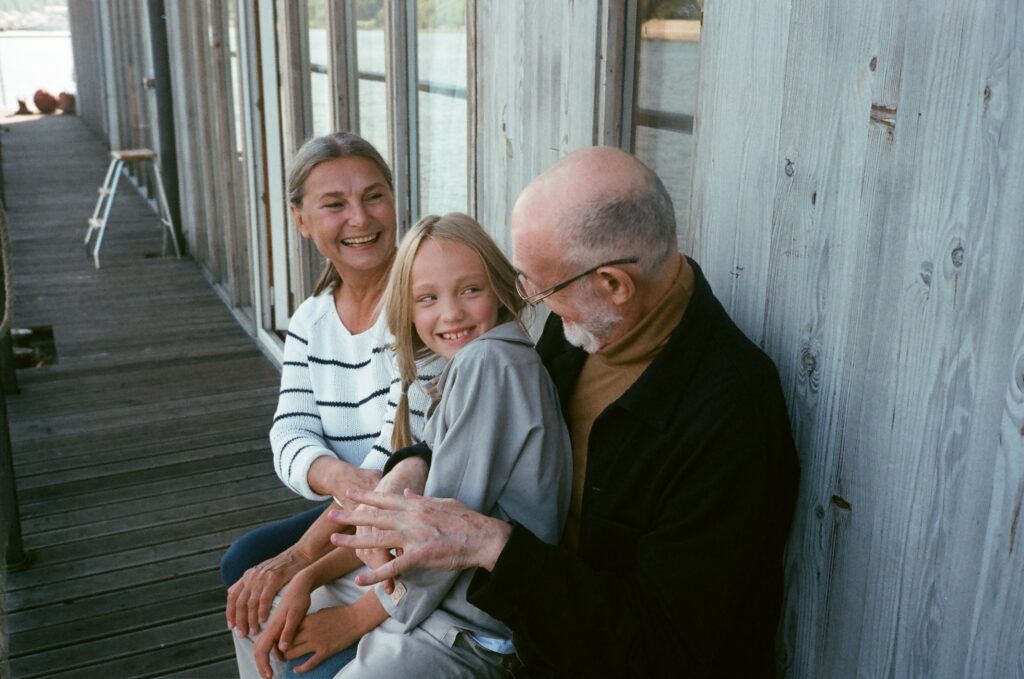Children in a Dementia Environment
Dementia causes a significant deterioration in cognitive ability, social and emotional skills, and behavior. Dementia also causes personality changes, memory loss, difficulty focusing, and confusion. A person with dementia may have trouble communicating and using language, making decisions, solving problems, and keeping their emotions in check.
This impacts a person’s life, relationships, and everyday activities.
However, the entire family is impacted when one member develops dementia. Children in the family need the most support when someone close to them – most likely a grandparent – has dementia.
The following advice will assist you in explaining dementia to your children and how it may impact their connection with the person who has it.
Explain Dementia to Your Child

While younger children might not be able to understand what dementia is and how it will impact the affected person and the whole family, they will be able to sense the changes in the atmosphere and the tension.
Younger children may not be able to comprehend the nature of dementia or the effects it will have on the person diagnosed or their family. Still, they may notice changes in the atmosphere and tension in the family.
For example, children may become terrified, anxious, or confused, not understanding why their once loving and playful grandmother is angry or sad, why they can no longer visit her, or why she doesn’t know them.
So, don’t leave things unexplained; try to explain the situation as thoroughly as possible, considering the child’s age. Your child will have a much easier time understanding and dealing with the issue if you take the time to explain the reasoning behind the person’s behavior.
Research resources about dementia together and try to respond sincerely to your child’s questions and inquire about their emotions.
Keep Information Simple

Parents know their children best, so it is up to you to judge how much information your child will be able to handle. However, no matter how old your child is, you should avoid overwhelming them.
Explain Alzheimer’s and dementia to your child using simple language so they can feel comfortable asking questions and gaining a basic understanding of the disease.
Share Useful Advice
It can be rewarding and hard to care for or spend time with a loved one with dementia. You can take specific steps to help your child deal with dementia behaviors more successfully. Here are some valuable tips to share:
- When talking to grandma, be patient. She may take time to answer your questions or might not answer them at all. That is okay.
- Speak slowly and keep communication clear and concise.
- Talk directly and softly, making one point at a time.
- Pay attention to your body language.
- Look grandma in the eye and talk to her in a friendly way.
Smile often because grandma will notice your emotional state and your body language
Try to Stay Positive and Calm
A family member who has dementia may have difficulty controlling their behavior or understanding what is happening around them. Stay calm and positive if they become angry, depressed, or frustrated. Speak gently and in a friendly tone to calm them down and de-escalate the situation.
By acting like this, you will relieve stress and set a good example for your kids.
Encourage the Connection Between Your Child and The Loved One
Dementia patients, especially elderly ones, can benefit much from being in the company of young children, according to studies.
So, encourage your child to spend time with the loved one with dementia. Help them to participate in activities they both enjoy. This can involve sitting outside in the garden, expressing themselves through art, reading to a loved one with dementia, spending an afternoon on the beach together, etc.
If your kid seems uneasy around the person, you shouldn’t force them to hang out with them. Instead, give them room to settle in and keep the connection going at their own pace

Give Children Time to Adjust to the News
When children learn that their favorite grandmother has dementia, they may go through a grieving process. How well they comprehend dementia and how it will affect the person they love, and their relationship with them depends on their age.
They might get angry and act out, or they might pull away and avoid the person with dementia or any talk about their illness. It’s important to know that all of these reactions are normal, so you shouldn’t punish, discipline, or get angry with your child. They may need time to sort things out emotionally, so give them some space. Offer support and tell them you’ll be there if they want to talk.


